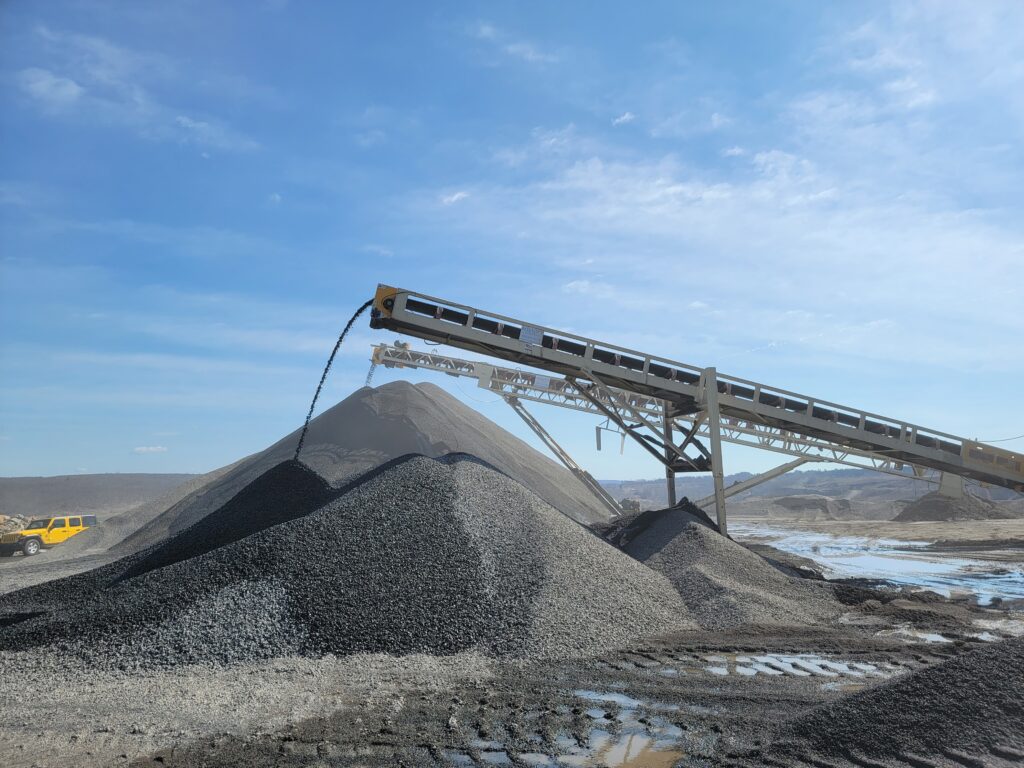Investing in the wrong type of rock crusher is a mistake that could result in significant financial losses. But knowing which one to choose can be challenging, especially when it comes to highly specialized equipment, such as Horizontal Shaft Impact (HSI) crushers and Vertical Shaft Impact (VSI) crushers.
Each machine has unique capabilities, strengths, and weaknesses, which can significantly impact your operation’s efficiency and the quality of your final product.
A Comprehensive Look At HSI Crushers
HSI crushers, or Horizontal Shaft Impact Crushers, utilize a rapidly rotating rotor with wear-resistant bars (often referred to as hammers) that collide with the material to be crushed. This primary method of crushing uses force and impact to fracture material, distinguishing it from other types of crushers that use pressure.
Strengths Of HSI Crushers
HSI crushers exhibit several advantages that make them an attractive choice for many crushing applications:
- Wide range of materials: HSI crushers are versatile and adaptable, effectively and reliably crushing softer substances, such as limestone, and hard and abrasive materials, such as granite.
- Adjustable curtains or aprons: This feature allows operators to control the output size. By adjusting the gap between the curtains or aprons, you can have greater control over the granularity of your end product.
- High reduction ratios: HSI crushers can convert large-sized input material into smaller, more manageable output, even in the primary crushing stage. This efficiency can reduce the need for additional secondary crushing stages.
Limitations Of HSI Crushers
Despite their numerous strengths, there are certain limitations associated with HSI crushers:
- High maintenance needs: When crushing abrasive materials, the bars or hammers can experience significant wear and tear, leading to frequent replacements. The maintenance cycle can be even shorter if the feed material contains a lot of dirt or isn’t correctly sized before being fed into the crusher.
- Shape control: HSI crushers can efficiently reduce material to a smaller size, but they may not offer as much control over the shape of the final product as VSI crushers. A VSI crusher may be more suitable if you require a cubic or flaky end product.
- Space requirements: HSI crushers tend to have a larger footprint than other crushers. This consideration can be crucial in operations where space is at a premium.
A Comprehensive Look At VSI Crushers
VSI, or Vertical Shaft Impact Crushers, operate quite differently from their HSI counterparts. They utilize a high-speed rotor and uniquely designed anvils to carry out the crushing process. Instead of direct impact on the material, VSI crushers achieve breakage through a method referred to as ‘rock on rock’ crushing.
Strengths Of VSI Crushers
VSI crushers offer several notable advantages in crushing operations:
- Self-generated crushing process: In a VSI crusher, the material is propelled outward using centrifugal force, colliding with each other and the walls of the crushing chamber. This reduces the need for added wear parts, leading to reduced maintenance costs.
- High-quality, uniform end products: The rock-on-rock crushing action leads to attrition, producing particles that are more cubical or flaky. This can significantly benefit specific applications like concrete and asphalt production.
- Versatility in material handling: VSI crushers can process a wide variety of materials, from softer, non-abrasive materials to harder substances, albeit with lower efficiency.
- Energy efficiency: VSI crushers can be more energy-efficient, especially when producing finer product sizes, due to their method of crushing via impact and attrition rather than compressive force.
Limitations Of VSI Crushers
Despite the advantages, VSI crushers do come with their own set of limitations:
- Feed size: VSI crushers may struggle with larger feed sizes. They are often used in tertiary crushing stages where the feed material is already relatively small.
- Handling of certain materials: VSI crushers may not be the best choice for overly moist or sticky materials, as this can lead to material build-up in the crusher. Moreover, while they can handle a range of material hardness, they may be less efficient than HSI crushers for highly abrasive materials.
- Initial cost: While VSI crushers may offer lower maintenance costs in some scenarios, they are often more expensive to purchase upfront than other crushers.
Factors To Consider When Choosing Between An HSI & VSI Crusher
When deciding between an HSI and a VSI crusher, consider the following factors:
- Material Characteristics: The hardness, abrasiveness, and size of the material you’ll be crushing can help determine the best crusher. Hard, abrasive materials are better suited to HSI crushers. In contrast, softer, less abrasive materials may yield superior results with a VSI crusher.
- Product Requirements: If you require a uniformly shaped product, a VSI crusher might be more suitable. Conversely, an HSI crusher would be the more practical option if the shape is not a priority, and you’re dealing with harder materials.
- Crushing Stage: Consider the stage of the crushing circuit where the crusher will be used. HSI crushers work well as primary and secondary crushers, while VSI crushers are better suited for the tertiary crushing stage.
- Economic Considerations: Consider both the initial cost of the machine and the ongoing maintenance and operational costs. While VSI crushers may be more expensive upfront, they can have lower ongoing maintenance costs, depending on the abrasiveness of the processed material.
Choose The Right Rock Crusher For Your Needs With Mellott’s Support
Choosing between an HSI or VSI crusher involves more than just understanding their differences. It’s about selecting the machine that will work best for your specific use case. The details of your specific situation could shift the balance, making your choice less straightforward.
We use our deep industry expertise to guide you in making this crucial decision. Mellott’s team of rock crusher experts consider your operation’s complexities to find the best match for your needs. Contact us today at 888.621.8533 or online to ensure your investment works optimally for your project.

